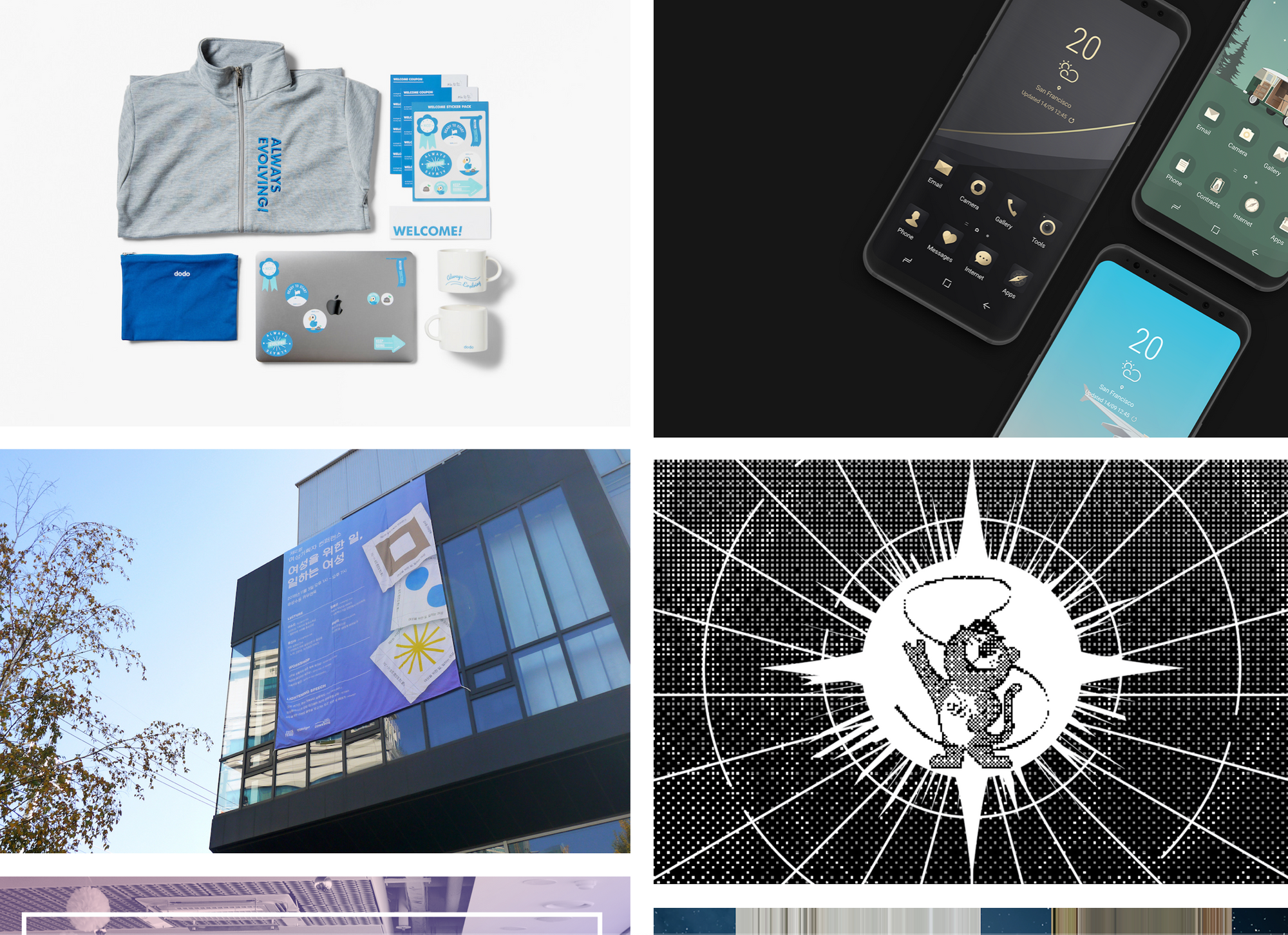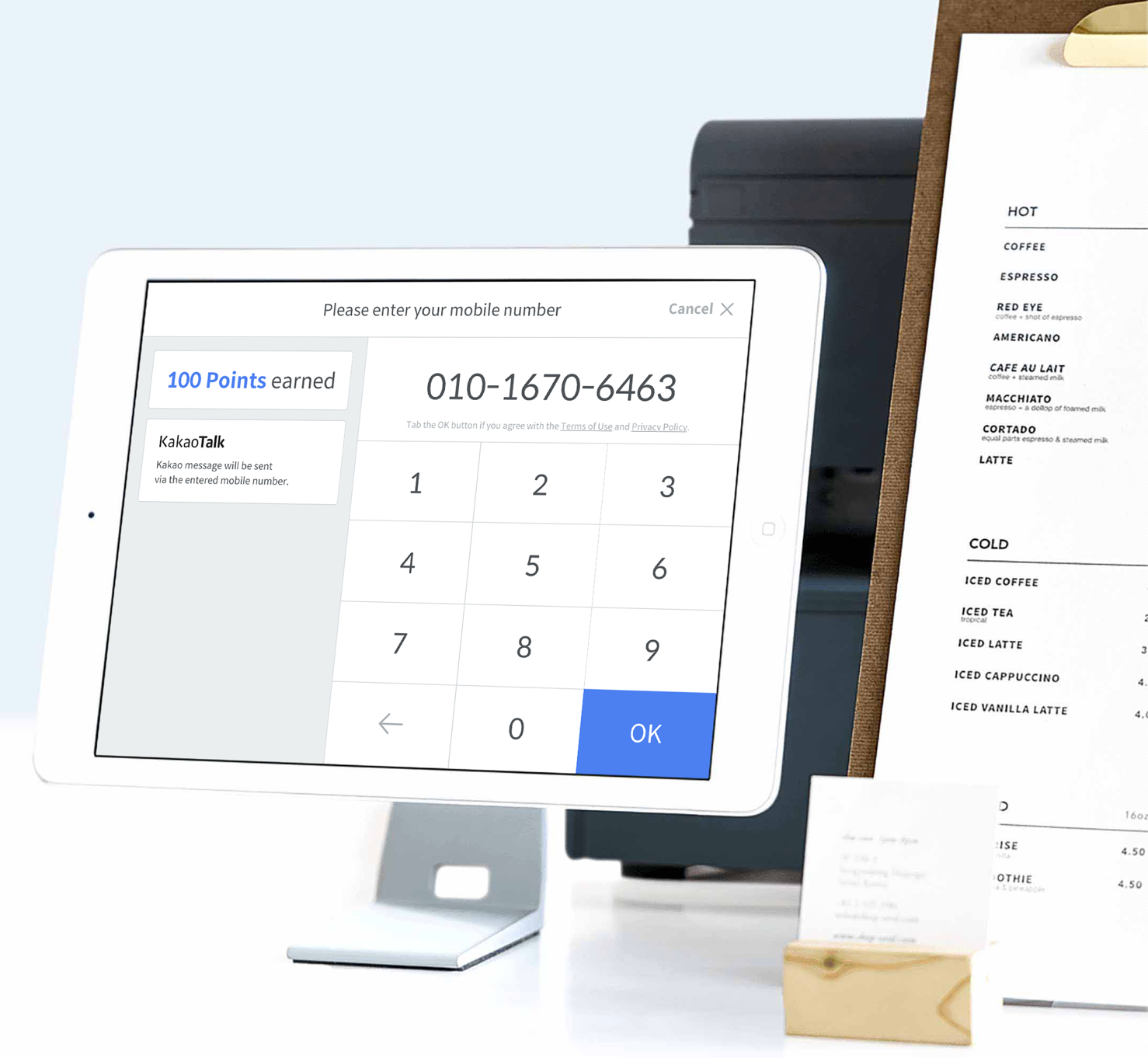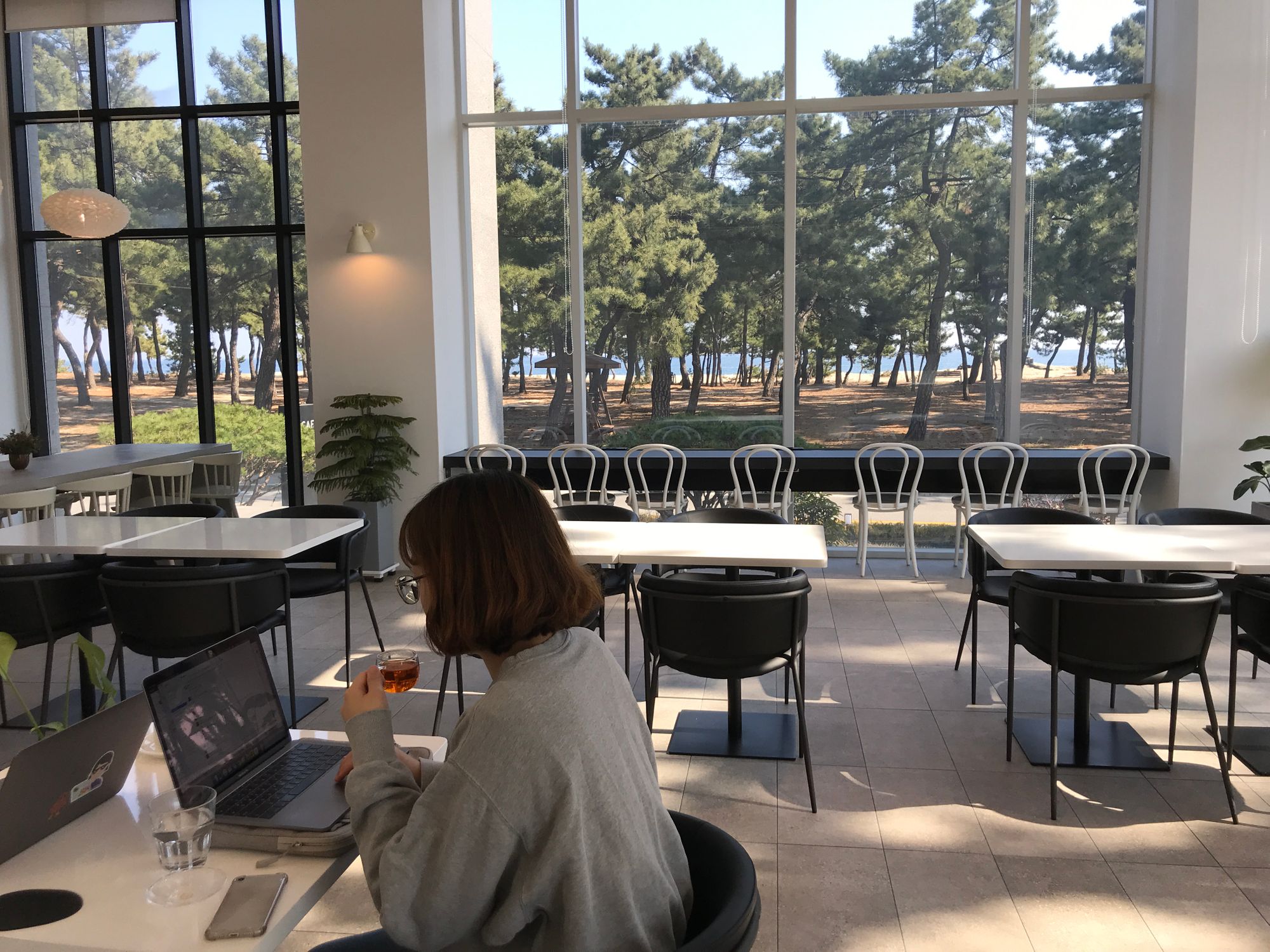Coffee Chat with Yujin Lee, Product Designer from Spoqa
A coffee chat with Yujin Lee, a product designer from retail mobile marketing solutions company Spoqa.

Good thoughts and good people call for a good coffee chat. We had an amazing time with Yujin Lee, a Product Designer living in Seoul, South Korea.
Who are you, and what do you do for a living?
My name is Yujin Lee, and I'm a product designer at Spoqa. Spoqa develops retail mobile marketing solutions (Dodo) for small businesses such as restaurants and coffee shops. Designers might find our font more familiar than our company, Spoqa Han Sans.

Tell me about the product you're working on?
Here at Spoqa, I am in charge of designing Dodo Point, which is a tablet-based point-of-sale device where customers can enter their mobile numbers to collect rewards. Merchants then use Dodo Point to know more about their customers - which items sell more, who buys more, and so forth. Merchants can also send promotions and coupons to their customers on holidays, etc.

How about for fun?
I don't have many hobbies per se, but I do like to work out and do side projects from time to time.
What's your recent side project?
I co-hosted the "Women's PM Conference" by TechFemi. It was a conference for female project and product managers in the tech industry. We had lots of fun! A few hundred people came to our conference and shared their insights and experiences.

Why did you decide to become a product designer?
I started my career at a design agency that did design work for brands like LG and Samsung. I liked working there because I was able to experience a number of projects and build product design foundations. But what it lacked was the depth of each project. I wanted to engage in projects from an end-to-end perspective. You know, like focusing one product or two.
What do you do to develop your skillsets and competence?
At Spoqa, we don't have a UX designer. So as a product designer, I work on products from its earliest forms and shapes. Working with prototypes is a bit different from fully-baked products. I try to read and learn as much as I can about different practices of managing a creative team tasked to build products from scratch and collaborating cross-functionally. I'm currently researching on best practices of user-story mapping. Any ideas? ;)
How do you keep your productivity level so high?
Lists. Simple as lists. First thing I do in the morning is to write my to-dos on post-it notes and stick them next to my screen. There are two main benefits to this. Post-its are a visual reminder of tasks throughout the day. And writing down by hand allows for more time to think deeply about today's to-dos.

I also use Microsoft To-Do to digitally keep track of what I did and what I will do in the future. No matter how efficient productivity tools get, it's more important to finding and sticking to a tool or system that works for you.
Do you practice focused work?
Yes. I use this method called the 'Pomodoro Technique,' which is a concept widely known for its simplicity and effectiveness. Basically, I set the timer to run for 40 minutes to focus on work and 20 minutes to steam off - catching up on Slack, email, or just simply resting.
What's in your productivity tools pack?
Microsoft To Do, Notion, Google Calendar, Jira, Confluence, Slack, and Zapier to connect them all.
I heard Spoqa adopts a good remote-working culture. Do you like working remotely? And why?

I love working remotely.
Spoqa, by default, is an open-space working environment. There are many benefits to working at an open workspace, but occasional interruptions by emails and DMs often distract me throughout the day.
Remote working lets me focus on my work while being accountable to tasks requested from others. It also helps me to take care of my personal tasks, such as receiving a package or seeing a doctor.
Random question. Windows or Mac?
Mac.
Any advice for product designers who just started their careers?
I used to think the ability to create stunning visuals counts 80% and the rest is 20%, but nowadays I believe visual counts for 30%, communication, and persuasion for 50%, and the rest - hiring, managing, etc. - 20%. Build your communication skills early on.
How can readers find you online?
Personal website or LinkedIn (included in the footnotes).
Yujin is the product designer at Spoqa, a retail mobile marketing solutions company based in Seoul, South Korea.
Pixelic is the creative collaboration software that blends tasks, feedback, version control, and more into one tool for designers.



